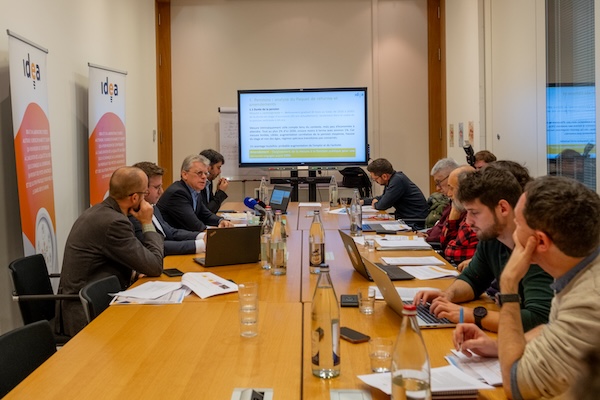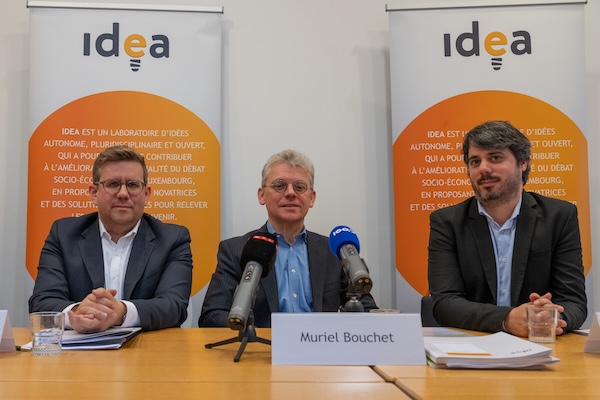 Credit: Ali Sahib, Chronicle.lu
Credit: Ali Sahib, Chronicle.lu
On Tuesday 11 November 2025, Fondation IDEA asbl held a press conference to present Working Paper No. 32, “Pension Reform Package 2025: Analysis and Amendments,” which examined the government’s proposed pension reform measures and suggested adjustments to ensure the system’s long-term financial balance, at the House of Entrepreneurship in Luxembourg-Kirchberg.
According to the foundation, the government announced on 3 September 2025 a pension reform package comprising twelve measures intended to ensure the financial balance of the pension system over three years, falling short of the stated ambition to stabilise it over the long term. The study mainly aims to address two key weaknesses: the absence of progressive measures capable of redressing the system’s deficit trajectory and the lack of cost-saving provisions on benefits, which rely solely on active and future contributors, thereby undermining intergenerational fairness.
The working paper was presented by Muriel Bouchet, economist, associate expert and member of IDEA’s Scientific Council, together with Vincent Hein, Director of Fondation IDEA, and Jean-Baptiste Nivet, Senior Economist at Fondation IDEA.
In an interview with Chronicle.lu, Muriel Bouchet explained that the study aimed to refine and broaden the government’s proposals to ensure their long-term sustainability: “We tried to make the reform more complete and precise, and to ensure that existing pensioners also contribute to the effort, which is not really the case in the government’s current package.”
He added: “The package works until 2030, but after that the reserves would decline very quickly, so we need to prepare a new and broader reform by then.”
IDEA elaborated that one of the key measures in the government’s package, the increase of the contribution period by eight months by 2030, would have only a limited long-term effect, mainly because it would also lead to higher pension payments later on. The foundation therefore proposed extending this measure to the public sector and, more importantly, reintroducing from 2026 a link between salary developments and pension adjustments, as was the case prior to 2012.
IDEA also noted that the planned rise in the contribution rate from 24% to 25.5% from 2026 should be immediately followed by an independent expert assessment of its effects on economic activity, public finances and contributors’ purchasing power.
It further proposed making the year-end allowance degressive according to income, in the interest of social and intergenerational equity, and capping the number of study years counted towards career calculations at seven. IDEA added that the minimum pension should gradually be raised by 5% while introducing additional social aid for the least advantaged.
The study also described the two proposed flexibility measures, a tax deduction for those working until age 65 and a progressive retirement system inspired by the public sector, as raising questions about their incentive value and budgetary cost. It called for a comprehensive evaluation of all measures designed to encourage longer careers within three years of their introduction.
In addition, IDEA proposed that the increase in the “retirement savings” tax deduction (from €3,200 to €4,500) be complemented by a more socially oriented deduction, along with a similar measure in favour of supplementary occupational pension schemes.
Finally, the foundation emphasised that the pension system should be reviewed again in 2030, since the proposed adjustments will not cover all expenditure in the longer term. This review, it stressed, should be prepared in advance, with detailed costing and new proposals by 2029, including for special pension schemes, given the complexity of pension reform and the need for sufficient consultation and debate time.
The full version of Working Paper No. 32, “Pension Reform Package 2025: Analysis and Amendments” is available on Fondation IDEA’s website.
(Caption: (L-R) Muriel Bouchet, economist, associate expert and member of IDEA’s Scientific Council; Vincent Hein, Director of Fondation IDEA; Jean-Baptiste Nivet, Senior Economist at Fondation IDEA; Credit: Ali Sahib, Chronicle.lu)









